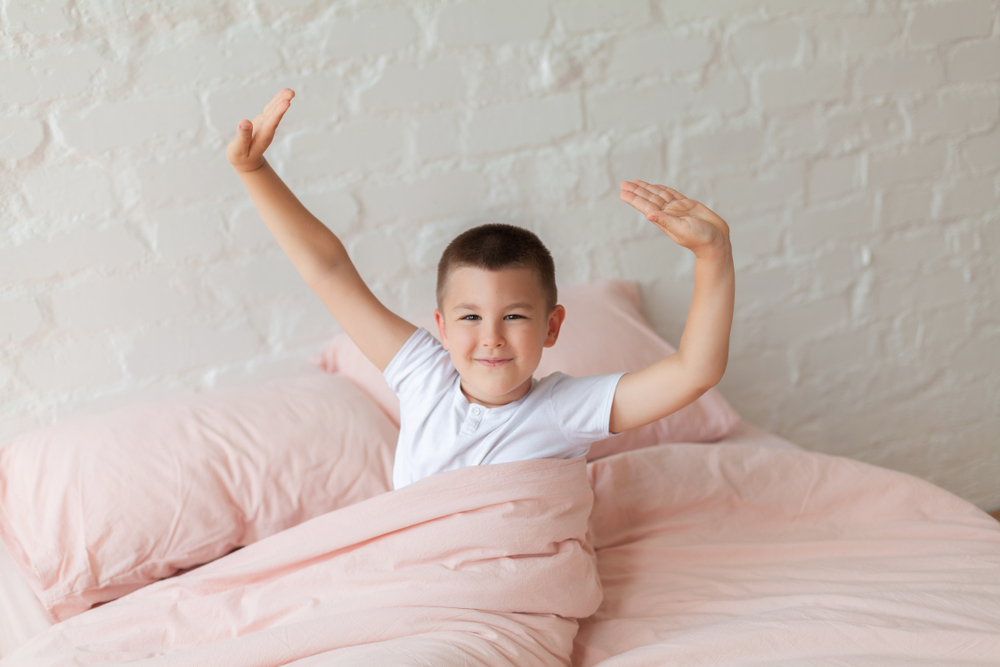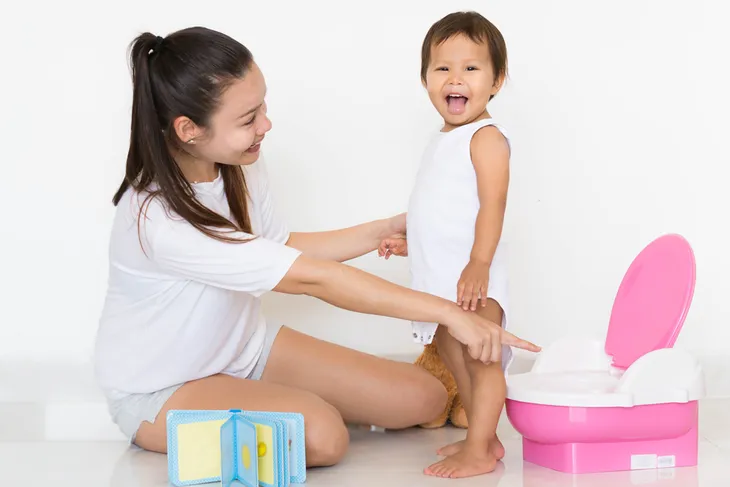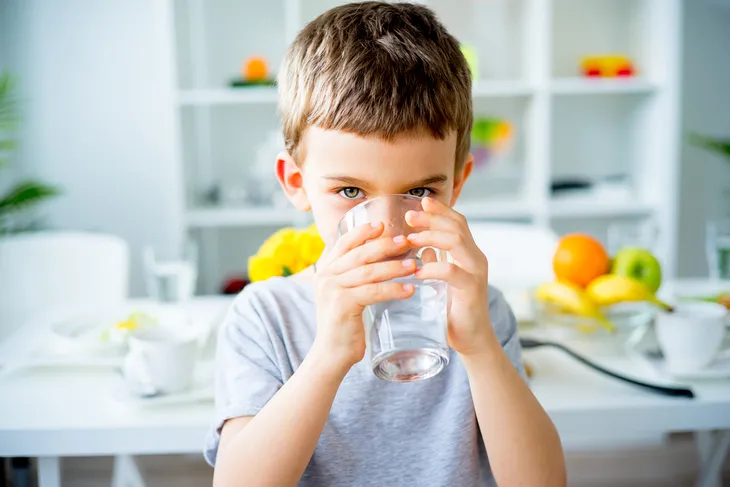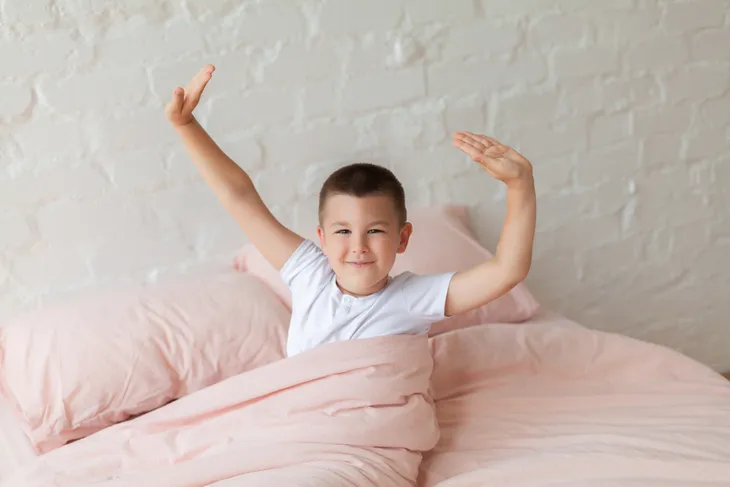It happens to kids who are newly potty trained, as well as those who have been out of diapers for a long while. Either way, they can wake up with an embarrassing puddle on the bed that can be troubling for both the child and their parents.
While the odd accident may be inevitable, there are ways to help reduce the frequency if bedwetting becomes a problem. Here are six tips to help your kids make it through the night without any accidents (and for you to get an uninterrupted rest)…
Don’t Shame
Your kid is probably already unhappy that they wet the bed, especially if it means having to get up abruptly and interrupting their sleep for you to change the sheets. Drawing attention to it or somehow making them feel like they’re to blame is not going to help the situation, notes WebMD.
In fact, the source recommends implementing a “no teasing” rule to avoid any siblings from bringing it up or making jokes out of it. This same rule applies to people outside of the immediate family, it adds.
Empty Bladders Before Bed
It’s good to get into the routine of encouraging your child to use the bathroom before they go to bed, and then once again when you make the trek to your own bed, says Parents.com. This will help ensure there’s no residual fluid waiting for its chance to spill out overnight.
Of course, if your child is sound asleep by the time you go to bed, then you may want to think twice about having them pee a second time. You could try it a few times and see how it goes, but if your bedtime is regularly 1 a.m., then it’s probably not such a good idea.
Limit Fluid Intake at Night
“Monitoring your child’s fluid intake a few hours before bedtime might definitely help,” suggests Chummie.com, which calls itself a “bedwetting treatment system”. At the same time, there are other considerations such as the type of liquids being consumed.
Colas and other caffeinated beverages in the evening can act as a diuretic that increases the need to urinate. Save those types of drinks for after school, notes the source. Be sure to not totally cut them off from non-caffeinated drinks before bedtime, as you also don’t want your child to become dehydrated. Step up their intake during the day to compensate, suggests the source.
Have Easy-to-Swap Sheets
This 2015 article in the Globe and Mail that talks about a fed-up mom who invented her own sheets to deal with her daughter’s bedwetting. It essentially consists of a waterproof pad and a bottom sheet, which can be easily removed in the event of soiling thanks to the miracle of Velcro.
These and other similar products that have popped up on the retail market are designed to help parents deal with wet sheets in the middle of the night without too much fuss or sleep loss. Because while wetting the bed is upsetting for a child, attending an important meeting on 3-hours of sleep is no fun for an adult.
Use Alarming Tactics
Technology has allowed for something called a “moisture alarm” that will alert your child when they start leaking at night. WebMD explains these alarms have a special moisture sensor right in the child’s pajamas that go off at the first hint of moisture.
The idea is that the child gets up in time to finish the job in the bathroom without a huge mess. “Bed-wetting alarms are among the most effective and safest bed-wetting treatments,” it notes, adding studies have shown these devices work best for children over 7-years of age (most kids stop wetting the bed by 5-years, according to the source).
Consider Medications
Probably not the first instinct you should have for reducing bedwetting, but if you’re at the end of your rope you can talk to your doctor about options including desmopressin, which actually reduces urine production, according to Parents.com.
However, you should also talk to your doctor about any specific side effects of these medications that can range from headaches to flushed cheeks to nausea, adds the source. It also doesn’t address any of the triggers or behaviors associated with bedwetting. “The second you stop the medication, the bedwetting might start again,” notes the source.
Desmopressin could be a good choice for situations, like sleepovers, where your child would be significantly embarrassed if he or she wet the bed.
Have Your Child Take Ownership
If your child is old enough, allow them to take ownership of their bedwetting. As we discussed above, you should avoid teasing or making your child feel bad at all costs. But, if your child wets the bed, you can have them take the wet sheets off, change their own clothes, and put new sheets on their bed. All of this can be done in a very matter-of-fact way without shame.
Knowing that they are responsible will encourage them to follow the rules you set in place to prevent their bedwetting. Your child will be less likely to sneak a caffeinated beverage before bed and may not need to be prompted to use the bathroom at nighttime.









